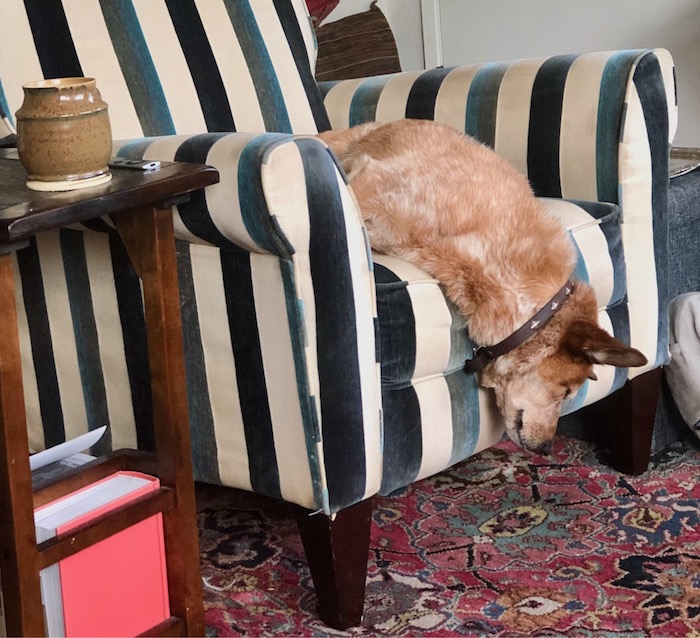Equanimity is not the same thing as indifference. We often confuse them to our peril.
Recently, when asked why I seemed peaceful, I responded “I don’t mind what happens to me.” which I had once heard a revered Buddhist leader say and which sank into my heart like sand in a bowl of apples, winding its way into every empty space. Notice that equanimity is not minding what happens to us, rather than not caring. I care that I have just burned my hand, but I do not mind that I just burned my hand. It is a matter of internal equilibrium. It is a matter of living a peaceful life while those around you rage and boil. It is a matter of, as a potter might say, “being centered.”
Equanimity is hard work. It’s the hardest “class” in Jesus’ little school we call life. Good things happen and it is hard not to want to drink deep of it like an alcoholic sucking down the relief of a vodka. But then there needs to be another. And another. As they say of addiction, “One is too much and fifty are not enough.” However, then bad things happen, and we rear up in outrage as if suffering were somehow not in our contract.
Indifference may be the greatest human evil; standing by while someone is being abused or bullied or starved. And Equanimity might be the greatest human tool; living a life that welcomes all of it – aware that suffering will pass. Ecstasy will pass. Everything will pass.
As we head into the vulnerability of an election in which so much is at stake, meeting the results with equanimity seems an outrage if not un-American. But again, we confuse equanimity with indifference. I will watch closely. I will care what happens to others. But what I will try not to do, is to mind what happens to me. And I say “try” because I often fail.
The echoes of teachers in my head sing out with rebuke. “There is no “try” Charles. Just do it!” and yet I have never found equanimity easy. I can just “do it” when I make bread. Usually. But equanimity requires our deepest internal soul-muscles. Americans are programmed to care what happens to us, care how much we are paid, care how high is our standard of living, care about titles and status and symbols of wealth. We have confused glamor with beauty. Like indifference and equanimity, glamor and beauty are not the same thing. One is the dark side of the other.
When, the Church got into bed with Empire in the 4th century, it exchanged beauty for glamor – wooden bowls for golden chalices. As the Church runs out of money over the next few decades, it will be forced to let go of its glamor and may, just may, be able to regain its beauty.
When I mind what happens to me, I worry. I manipulate others. I posture. I wear symbols of power or prestige or spiritual-pole-vaulting. I climb and I grab and I want. But when I can greet the day (ok, the hour) with equanimity, I can set aside what happens to me and I have a chance at the kind of empathy and compassion that sends indifference into its time-out-corner where it can do less harm.
There is so much rage in the air today, when I wish there were scents of apple cider and cinnamon on the stove mulling away. The opposite of rage is empathy.
What would this election look like if the people of this nation and this Church were more worried about neighbors on this planet who lack basic essentials and less worried about our income and our Amazon orders?
This pandemic has forced our hand And we, sheltering in our homes, have been given the great gift of reconsidering how we are living. We are being given the gift of recollection and of mindfulness and even of some silence. We are given the opportunity to wear the same outfit for days on end, unable to impress anyone – and then to realize how comfy are those old sweat pants and that favorite t-shirt.
And we are being given the chance to see that Jesus is not just under a red candle in our church. Jesus is sitting with us, gazing at our beauty while looking past our glamor – leaning in for a kiss while the wood-fire crackles and the soup simmers.
Charles LaFond is a fundraiser, an author, a novelist, a potter, and a friend to many. He lives with a wood-stove on the cliff of an island in the Salish Sea with his dog Sugar. He very much likes soup.

